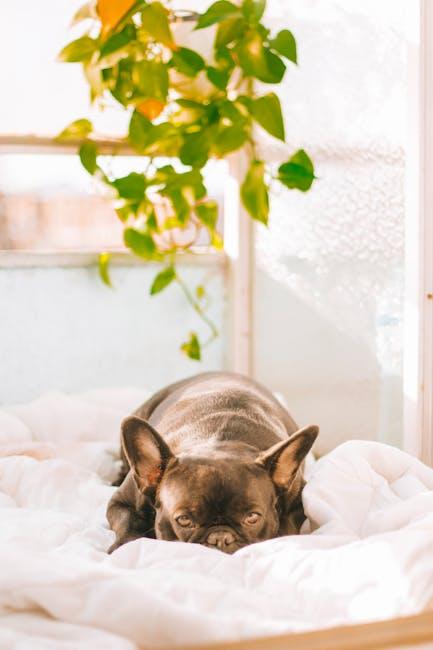Welcoming a new puppy into your home is an exciting and joyful experience, but it can also come with its fair share of challenges—especially when it comes to nighttime whining. As your puppy adjusts to their new environment, it’s natural for them to express discomfort or anxiety through vocalizations. However, there are effective strategies you can employ to soothe your puppy and ensure peaceful nights for both of you. In this article, we’ll explore quick and compassionate solutions to help stop your puppy’s whining at night, fostering a calm and restful atmosphere for everyone in your household. Whether you’re a first-time pet parent or a seasoned dog owner, these tips will guide you in nurturing a secure and serene bedtime routine for your furry friend.
Understanding the Reasons Behind Your Puppys Nighttime Whining
Nighttime whining can be a perplexing issue for many new puppy parents. Understanding the underlying causes can be the first step towards addressing this behavior effectively. Puppies, much like human babies, are adjusting to a new environment and often express their discomfort through whining. This behavior can stem from a variety of reasons such as separation anxiety, need for attention, or simply discomfort.
- Separation Anxiety: Puppies are social animals and being away from their littermates and mother can be a big adjustment. Whining at night can be their way of expressing loneliness and a need for comfort.
- Need for Attention: Sometimes, your puppy might just be seeking attention or playtime, especially if they have been alone for a significant part of the day.
- Discomfort or Needs: A whining puppy might need to relieve themselves or might be too hot or cold. Ensure their sleeping area is comfortable and that they have had ample opportunity to go outside before bedtime.
By recognizing these signals, you can tailor your approach to soothe your furry friend. A warm, soft bed, consistent bedtime routine, and some reassuring presence can work wonders in calming their nighttime jitters. Remember, patience and understanding go a long way in nurturing a secure and happy pup.

Creating a Comfortable and Secure Sleeping Environment for Your Puppy
To help your puppy feel at ease in their new sleeping space, consider the following key elements. First, ensure that the bed or crate is the right size—large enough for your pup to stretch out but cozy enough to provide a sense of security. Soft bedding can make a world of difference, offering both warmth and comfort. A familiar scent, such as a piece of clothing you’ve worn, can be added to the bed to further reassure your furry friend.
Creating a secure environment goes beyond just the physical space. Sound and lighting play crucial roles in making your puppy feel safe. A nightlight can help soothe any anxiety about being alone in the dark, while a white noise machine or soft classical music can mask unfamiliar sounds that might cause stress. Consider these auditory aids to create a calming atmosphere.
- Choose a spot away from drafts and direct sunlight.
- Ensure the area is free from small objects that could be swallowed.
- Use a sturdy crate or playpen to prevent wandering.
By thoughtfully setting up your puppy’s sleeping area, you not only promote restful nights but also build a foundation of trust and comfort, helping to minimize nighttime whining.

Establishing a Consistent Nighttime Routine to Soothe Your Puppy
Creating a calming and predictable environment for your puppy during the evening can be incredibly effective in reducing nighttime whining. A consistent routine helps signal to your puppy that it’s time to wind down, providing comfort and security. Here are some tips to establish a soothing evening ritual:
- Set a fixed bedtime: Just like children, puppies thrive on routine. Decide on a bedtime and stick to it. This consistency helps them understand when it’s time to rest.
- Engage in calming activities: Spend some quiet time with your puppy before bed. Gentle petting or a short walk can help them release any pent-up energy, making it easier for them to relax.
- Limit food and water intake: Ensure your puppy eats dinner a few hours before bedtime and limit water intake in the hour leading up to sleep to prevent nighttime bathroom breaks.
Incorporating these habits into your puppy’s nighttime routine can create a peaceful transition to sleep. Over time, your puppy will learn to associate these activities with bedtime, reducing their anxiety and the likelihood of whining. Remember, patience and consistency are key to helping your furry friend adjust to their new routine.
















